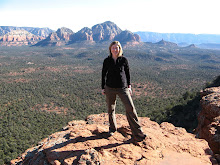detail work on the eyes and faces. I saw a woman teasing eyelashes on an ostrich head to make it look as realistic as possible. What a bizarre thing to do for a living! What was really interesting was looking at where the boxes were going to. The majority of boxes were being shipped to Texas (I won't go there!) and Wyoming, although I saw one being shipped to Wall Street. Some rich dude in NY is going to have a stuffed leopard or something in his office. I guess there's no accounting for taste.
Normally, this kind of thing is totally not my bag. I'm certainly no friend of the hunter - I just don't get why people like to kill things they aren't going to eat - but the fact that there is more wild game on private land than in national parks (excluding the Big 5) here speaks for itself. The saying among farmers here is "if it pays, it stays". In other words, the private land owners have been much better at managing wildlife effectively and generating jobs for local people. For example, a farmer might allow private game hunters to do limited trophy hunting, but he and every other farmer in the area have a huge incentive not to overhunt the Oryx or Kudu that the tourists come to see on game drives and to hunt, as it would reduce their business from year to year. So, if the balance is right, the farmer is incentivized to only use what's necessary and take steps to ensure proper game numbers. On the farm here, the meat is actually used to feed guests
and staff, and the hunters just get the trophies (there's no predator hunting on this particular farm). By the way, oryx steak is one of the most delicious meats I've ever tasted:)
Well, I am only on the farm for 5 more days, and then I take off on a 7 day trip to Etosha National Park (in the north) and Sossusvlei (southeast, desert area). After my quick trip to Swakopmund with the other volunteer, I got the travel bug again and realized I needed to explore a bit more than just the farm. It should be fun!
I'm off to teach kindergarten now. We are learning parts of the body today, and I'm just getting them to sing "head, shoulders, knees and toes" on their own. Super cute.

No comments:
Post a Comment